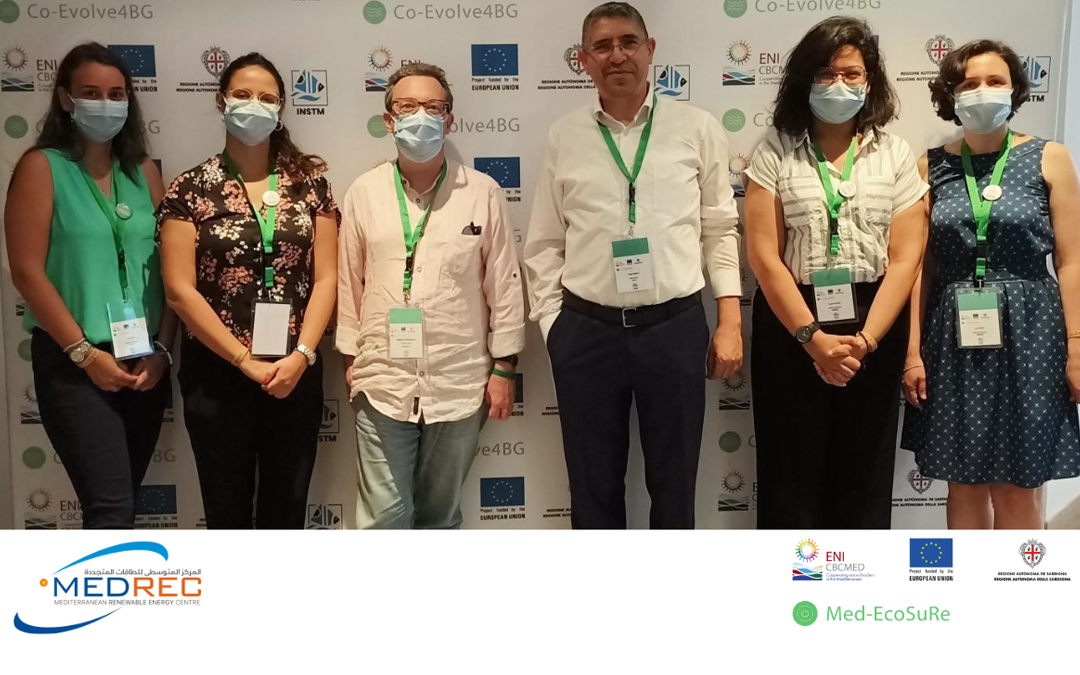During a seminar (information event and workshop) organized by the Co-Evolve4BG project on June 25 and 26, 2021, the Mediterranean Renewable Energy Center (MEDREC), Med-EcoSuRe’s main partner, was invited to share the participatory living lab approach developed within the project.
This event is organized as part of a collaboration agreement signed between the French National Institute of Marine Science and Technology (INSTM) and MEDREC.
The first day of the event was dedicated to presentations on Co-Evolve4BG pilot projects, initiatives and projects promoting the blue economy in the Mediterranean (e.g., Westmed), and the tourism potential of the island of Djerba, the project’s pilot region. This information day was attended by representatives of the ENI CTF MED programme, the Tunisian Ministry of Economy, Finance and Investment Support (formerly the Ministry of Development, Investment and International Cooperation), the Union for the Mediterranean, as well as key stakeholders from the maritime and tourism sectors, mainly in Tunisia.

A workshop was held on the second day of the seminar to exchange best practices with other national and regional initiatives and projects, and to discuss how stakeholders and end beneficiaries in the Co-Evolve4BG project’s target regions can be effectively involved in the ongoing project’s implementation. In this context, the Med-EcoSuRe team presented the Living Lab approach implemented within the project to Co-Evolve4BG’s local tourism stakeholders in Djerba. This participatory approach makes it possible to propose solutions that best meet the needs and expectations of the project’s stakeholders and end beneficiaries.
The workshop participants were presented with the various phases of the Living Lab’s implementation and stakeholder involvement, as well as the tools developed to support building energy renovation planning. These include:
– Toolkits for designing passive energy renovation solutions for public buildings;
– Interactive decision-making tools to simulate and optimize various renovation measures for different building types and under different climatic conditions;
– Simplified calculators have been developed for assessing the energy consumption of buildings in the residential and educational sectors;
– A collaborative platform facilitates cooperation within the LL community.

Finally, an overview of the situation of energy management of buildings in the tourism sector was presented, including national opportunities (incentives) supporting the energy renovation process in existing and new buildings, such as the EcoBat label.


